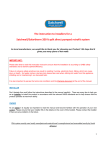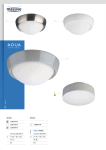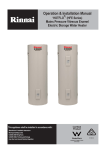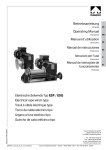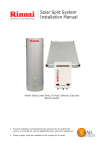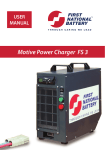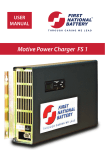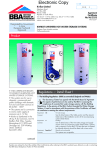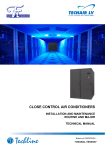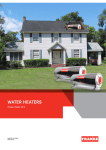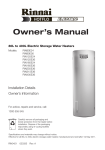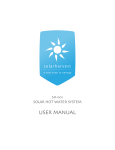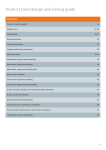Download Satchwell-Kwikot 150 L pumped retrofit
Transcript
The instruction to installers for a Satchwell/Kwikot 150 lt split direct pumped retrofit system As local manufacturer, we would like to thank you for choosing our Product! We hope that it gives you many years of hot water. IMPORTANT: Please take time to read this instruction manual to ensure that the installation is according to SABS safety standards and to achieve optimal efficiency. Failure to observe safety practices may result in scalding / burning, electrical shock, falling, which can cause injury or death. Hot water carries a burning risk; please take care when utilizing hot water from this appliance, installing and or maintaining it, as discussed later. It is also important to peruse the terms and conditions and the Warranty document at the end of the manual. Very Important: Ensure that when installing this system the Vacuum breakers, TP Banjo Valve, Pressure reducing valve and Drain cock are used as per the specification of the Geyser Manufacturer. Failure to do so will result in losing the warrantee on the geyser. INSTALLER Don’t deviate from and follow the instructions described in the manual carefully. There are many tips to help you as an installer to install the product in accordance with the relevant SABS standards and to help ensure that the product operates at maximum ability. OWNER As an owner it is equally as important to read the manual and become familiar with the operation of your new system. Please ensure that your installer fills in the details on the cover of this booklet. Please contact the installer if there are any problems in the future. (This system mostly uses locally manufactured material and is manufactured and assembled mostly by South Africans) 1 The Satchwell/Kwikot 150 lt split direct pumped retrofit solar system 1. SYSTEM INFORMATION / SYSTEM OVERVIEW The function of this Solar Water Heater (SWH) is to use the energy from the sun to heat water. The heating of the water is achieved via the Flat Plate Collector. The Flat Plate Collector is filled with water which is heated during the daylight hours and this hot water is stored in the main tank. The hot water rises in the Collector and is replaced by the cooler water which is at the lower level of the main tank by means of a pump. This cycle is repeated continuously throughout the day thus heating the water in the main tank. Cold water is supplied to the system as the hot water is drawn from the main tank. The geysers electrical element is controlled by the electronic geyser controller and will only be activated if the geyser temperature falls below a pre-set temperature during a pre-set time. The following minimum requirements are in addition and may be in duplication to any requirements as specified by SABS or National Building Regulations. 6.3 (a)INSTRUCTIONS FOR SAFE AND CORRECT INSTALLATION 6.3 (a)(i) The Solar Water Tank, Collector (“The System”) Important: This solar system is for horizontally installed geysers only. MIXING VALVE COLD WATER TO HOUSE VACUUM BREAKER VACUUM BREAKER HOT WATER FROM PANEL HOT WATER TO HOUSE STOP COCK SO LA R PA NE L PR VALVE TP BANJO VALVE COLD WATER INLET PUMP TPV OVERFLOW PRV OVERFLOW DRAIN COCK NON RETURN VALVE COLD WATER TO PANEL FLOW DIRECTION Fig. 1 – Installation Schematic The Tank is a 150 liter pressurized type and the system is classified as a split direct pumped type and is only to be used in coastal areas where no freezing is likely to occur. 2 6.3 (a) System Installation: 1. The flat plate must also not be used in water conditions where the dissolved solids / minerals are more than 1000ppm (“hard water areas”) that can cause blockage in the panel (because of scale). 2. Collectors should be located as flush as possible on roof to reduce exposure to wind and/or a storm. 3. It is strongly recommended that the collector is covered until the installation is completed. IMPORTANT: If the collector is left uncovered in the sun the copper connections can reach temperatures of over 100’C and cause burn wounds. 4. Before installing or attempting an installation, it is imperative that a structural survey is done on the area of installation. Ensure safety procedures (wearing of safety harnesses, safety helmets, gloves and goggles) are adhered to. 5. Also remember: Are there trees or other buildings that could cast shade on the collector during any part of the day? How far will the collector be located from the geyser? Piping and insulation is expensive and long pipe runs also add additional heat losses to the system. 6. For installations on cement roof tiles one can use thin metal straps to secure the collector. The metal straps are slid in under the tiles and fastened to the roof trusses and riveted onto the flat plate on the other end as indicated in Figure 2, Steps 1 to 4 below. 7. In the case of sheet roofing the roof screw can be removed, the strap placed over the existing hole and the roof screw reinserted thereby securing the strap. Important: In instances of sheet roofs, appropriate waterproofing needs to be applied to the roof surface after the straps have been secured. Please refer Figure 3 below 8. Once the mounting position and the method of fastening have been determined it may be best to first fit the collector to the roof and then drill the holes for the copper piping that connect to the collector. Ensure that the holes are big enough in diameter to accommodate 22mm copper tubing with about 1 mm clearance. Important: The entire circulation loop between the geyser and collector must be of copper tubing and insulated using “HOTFLO 19x25” insulating material. 9. To prevent cracking of certain fiber cement roof sheeting, a flat mounting frame designed to spread the load of the geyser and its contents should be designed by suitably qualified personnel. 10. No sharp edges should ever rest against the roof materials - a foot or bearing plate should be utilized. 3 Fig. 2 – Collector Installation – cement roof tiles: Step 1: Step 3: Step 2: Step 4: Fig. 3 - Collector Installation – sheet roofing: 4 6.3 (a) Collector Orientation: 1. The collector should be orientated as close to true North as possible but must be between North East and North West. Please refer to the sketch drawing below: 2. The collector must be at a minimum horizontal angle of 20 degrees. Since roof angles are normally between 22 degrees and 45 degrees the collector can usually be mounted flush on the roof. However, if the collector is to be mounted on a flat roof, a stand is needed to obtain the tilt the collector requires. 3. The collector when viewed from the front must be vertical with no lean to right or left. 5 6.3 (a) Geyser installation: The geyser must be must be installed by suitably qualified, PIRB plumbers and electricians complete with a Temperature and Pressure (TP) Safety Valve, Drain Cock, Pressure Reducing Valve (PRV), Drip Tray and Vacuum Breakers on the cold and hot water supply, in accordance with relevant South African Norms and standards, National Building Regulations, Law and Regulations, Local Bylaws including the following: • SANS 198 – Functional control valves and safety valves for domestic hot and cold water supply. • SANS 10106 – The installation, maintenance, repair and replacement of domestic solar water heating systems. • SANS 10252 – Water supply and drainage for buildings. Part 1 – Water supply installations for buildings. • SANS 10254 – The installation, maintenance, replacement and repair of fixed electric storage water heating systems. • SANS 10142 – The wiring of premises. Part 1 – Low Voltage installations. • SANS 10400 – Part A,B,L,XA • Occupational Health and Safety Act (Act 85 of 1993) • National Building regulations Act 103 of 1977 • Water Services Act ( Act NO 108 of 1977) Where the geyser is mounted inside the roof keep the distance between the geyser and the collector as short as possible to prevent unnecessary long pipe runs and it is best advised to build a geyser support deck as in Fig. 4 below. Fig.4 6 6.3 (a) Interconnecting Pipe work: 1. All pipe work between the geyser and collector must be of 22mm, made with compression fittings, and ONLY copper tubing due to the very high temperatures the solar collector can reach. 2. All plumbing connections/fittings must comply with SABS requirements. 3. Isolating valves of the cold water feed to the SWH system must be a lever type and easily accessible. 4. Cold and hot water supply to the mixing valve and to the house must be balanced pressure. Refer to Fig. 1 Installation schematic. 6.3 (a) Electrical connections: 1. Ensure that the isolator to the installation is switched off before commencing with any work on the system to prevent injury and possible damage to the equipment. 2. All electrical connections must be made by a suitably qualified installer. 3. Connect the electronic geyser controller as specified in the instruction booklet supplied with the unit. 4. After the completion of the installation a registered electrician must issue an electrical COC for the work done. 7 6.3 (a) Electronic geyser controller connection: 1. The electronic geyser controller can be connected anywhere suitable but in most cases the optimum position is very close to the geyser to ensure the shortest cable runs. The electronic geyser controller has a remote display unit and should be mounted where the client will have easy access but is also aesthetically pleasing eg: in the house against the wall, in a cupboard, etc. The client should always be consulted on this beforehand. Power for the controller can be obtained from the geyser element cable provided that there is no ripple controller, geyser timer or similar device installed that could interrupt the power source. Alternatively, power can be obtained from any other plug circuit in the house. Note: The 12Vdc controllers are polarity sensitive and therefore it is critical to have positive connect to positive and negative to negative. If frequent power failures are expected a relatively small power backup system can be used to supply the controller. Since an external geyser element relay is used to drive the geyser element the peak power requirement of the controller would be much less than 50W (220V pump version). Consult the electronic geyser controller manual for correct and safe installation instructions. 6.3 (a) Temperature Sensors: 1. Most electronic geyser controllers have a method to display the temperatures that are monitored. There are different types of temperature sensors with the various electronic geyser controllers. Consult the electronic geyser controller manual for information on the required wiring diagram. Verify that the temperature readings of the various sensors make sense and change as expected. (Consult the electronic geyser controller manual) 6.3 (a) Tempering valves: 1. Tempering valves must be fitted to comply with required maximum heat into the home (normally 55° Celsius) and must be suitable for high pressure installation. 8 6.3 (a) Circulation pump installation: 1. Refer Fig.1 Installation Schematic. 2. A circulation pump is required to pump water from the cold send port of the geyser through the solar collector and into the hot solar port of the geyser. Please ensure that the pump is installed so that the water circulation occurs in the correct direction through the loop. The arrow on the pump indicates the pumping direction. The pump must be at the cold send side of the circulation loop no more than 1 meter from the geyser. Always place the pump over the drip tray so that if a leak develops the water will drip into the drip tray. A non-return valve must be installed after the pump to prevent reverse siphoning and hot water from pushing back during collector stagnation. Insulating the pump improves the thermal performance of the system but also reduces the audible noise from the pump. Note: Please consult the pump installation booklet with regards to correct physical orientation of the pump. Most of these pumps require the drive shaft to be mounted horizontally. If these pumps are mounted with the rotating shaft in a vertical position it will overheat eventually. Also note the fitting connection instructions as the pump can get damaged by incorrect tightening procedures. Also make sure that the copper tubing is not causing any tension on the pump body. Special Note: DO NOT run the pump with no water in the system as this will result in pump damage and make the warranty null and void. 6.3 (a) Waterproofing: 1. Where pipes go through roofs all holes must be properly waterproofed to avoid leaks. 2. Silicon sealant is suitable for all of the holes in the roof since it is able to withstand high temperatures very well. Please ensure that surfaces are clean before applying it. However, silicon is adversely affected by UV rays and we therefore recommend that aluminum Flash band be used over all the silicone sealed areas. The flash band itself also provides very good secondary waterproofing. 9 6.3 (b)INSTRUCTIONS FOR SAFE AND CORRECT OPERATION OF COMPLETE SYSTEM Once the Safety Precaution list below ((6.3 (d)) has been checked proceed with the following steps: 1. After the geyser plumbing and the entire solar circulation loop fitment are completed as per Fig.1 installation schematic, the main supply valve to the geyser can be opened. 2. Inspect the entire system for water leaks, paying special attention to all compression fittings and fix any leaks. 3. Air locks are one of the most common problems in a solar system, resulting in poor heat transfer and possible damage to the circulation pump. If the installation does not include an Air Release valve and trapped air is suspected, the installer must loosen the compression fitting at the top of the flat plate collector so that the water pressure can expel all the air from the system. Please be aware that even if an Automatic Air release valve has been included in the system the installer is still required to ensure that there are no other pipe sections where air could be trapped. 4. After it is ensured that there are no leaks on the systems, no air locks in the system and that the system is completely filled with water and all electrical connections has been double checked, the electrical supply to the system can be switched on. 5. A major part of the system commissioning involves the electronic geyser controller so consult the controller manual and familiarize yourself with all of its functions and settings. 6. Most electronic geyser controllers have an override function to switch on the pump. Activate this function and feel the pump for vibration to make sure it is running. Special Note: DO NOT run the pump with no water in the system as this will result in pump damage and make the warranty null and void. 7. Most electronic geyser controllers have an override function to switch on the electrical geyser element. Activate this function and you should see and hear the control relay latching. Leave the controller in override mode for some time and make sure the geyser temperature increases as expected. The controller will automatically switch off the override function when the geyser reaches the programmed electrical heating switch off temperature. (default value is typically 55’C) Note: The override function cannot be used when the geyser temperature is above 50’C. Special Note: Activating the element with no water in the geyser will result in element damage and make the warranty null and void. 8. Uncover the panel and ensure that the glass plate is clean. 9. Best performance achieved with well insulated pipes. The hot line from the collector must be insulated to reduce heat losses. 10 6.3 (c) INSTRUCTIONS FOR REGULAR MAINTENANCE (Please read and note the safety instruction that follows) • For optimum performance clean and wipe glass on panel every 3 months, removing dust, bird droppings, leaves etc. Use a soft cloth or mop. Regularly inspect the solar system for any leaks or damages. Turn off main water supply and the electrical supply to the system. Open the drain cock to flush tank with fresh water once a year to flush any settled scales. Turn off main water supply and the electrical supply to the system. Carefully loosen stop-end at the bottom of the panel to flush out collector, using clean, fresh water (at least once a year) DANGER: Water can be extremely hot! • • • • 1 Problem Possible Cause Corrective Action No hot water Electronic geyser controller not set correctly. Check that electronic geyser controller is set correctly. Main electrical supply to the system interrupted. Check that the main electrical supply is switched on. If the fault still persists, contact an authorized service provider. 2 • Not enough hot water Electronic geyser controller not set correctly. Raise set temperature on electronic geyser controller. Thermo siphoning loop malfunction. Contact authorized service provider immediately. In case of emergency, i.e. Broken panel or leaking tank, immediately turn off the electrical supply to the system, close cold water supply to system immediately, and call the authorized service provider for rectification of the problem. 11 6.3 (d) SAFETY PRECAUTIONS Safety Installation Requirements For Pressurized Solar Hot Water System: • Factory labels and markings may not be altered or rendered unreadable. • All safety regulations apply when installing a system and all installations are to be done in accordance with the Occupational Health & Safety Act and Regulations 85 of 1993 requirements and any relevant local authority bylaws. When installed inside the roof minimum clearance must be allowed in order to remove the element and thermostat. • • Assess the risks specific to the area of installation and eliminate or reduce to an acceptable level to fall within the H&S requirements, before starting with the installation. • Assess weather conditions to determine if safe installation will be possible e.g. high winds, rain, lighting, etc. • Inform home owners or building occupants of the time and place of work to be carried out as well as risks involved. Ensure occupants are aware of access constraints and safety implications to them. Cordon off area and ensure pets are secured. • Beware of overhead power lines coming through the roof, crossing the roof overhead, or wiring running through the ceiling, in the area where the installation need to take place. • Ensure persons doing an installation are competent and in suitable physical condition. All personnel working on an installation of a solar hot water system must be issued with the appropriate safety equipment e.g. goggles, hard hats, gloves, safety wear, etc. and trained in their use. Be sure to comply with the specified degree of protection. • Working at heights should only be undertaken by suitable qualified personnel, using the proper safety equipment. Installers must be trained and conversant with the assessment of height hazards, working at heights safety procedures and assessment of safety equipment e.g. scaffolding, ladders, harness, etc. • Scaffolding and safety equipment must be installed by certified personnel and be signed off accordingly. • Water temperature can reach boiling point and the collector can reach stagnation temperatures of over 70°C. Shade collector during installation to prevent heating. • Care should be taken not to touch the pipe work connecting the solar storage tank and the solar collector; very high temperature hot water can be generated by the solar collector under certain conditions and will flow through the pipe work from the solar collector to the solar tank. • Take care when handling collector during installation to prevent breakage to glass and injury. Safety goggles, work wear and gloves must be used to reduce the risk of injury. Also, ensure to: • Check and double check that all electrical connections are good! • check that all anchor points to the roof are secure, tight and properly waterproofed. • check that all plumbing connections have been tightened. • check that the Drain Cock on the Main Tank is closed. 12 6.3 (e) TECHNICAL DETAIL OF MAJOR COMPONENTS 1. Geyser: The sticker provides the information relevant to the geyser. Rated capacity of the container, in litres 150L Wattage 3000 Watt Working pressure in kPa 400 kPa Indication of installed position Horizontal and Vertical Mounting Wall and Floor Whether standard, solar or dual purpose standard Standing loss in kWh /24h 2.59 kW-h The moisture resistance classification: IP number IPX-4 2. Panel: The sticker on the side of the panel provides the information relevant to the Panel The manufacturer's name, trade name or trade mark Satchwell Solar Supplies A model number Satchwell STC 2.0 The working pressure in kpa 600 kPa The aperture area 1.85 sq m Hail cover required No Resistant to freezing No Material of the fluid channels Copper Material of the collector cover Pattern tempered glass 3. System: A second sticker that incorporates the information in the table below must be fixed to the tank near to the solar outlet. Trade name Kwikot, 3 Aberdeen Road, Benoni. Tel: (011) 897-4600 Model/System Number SK 150 Retrofit Tank name & model Kwikot HP ESG150 Collector Name & Model Satchwell STC 2.0 Freeze Resistant: NO Energy 19.2 MJ/day Rating: Overnight Energy Loss: 5% System type: Split Direct Pumped 13 6.3 (f) INCLINATION ANGLE (RANGE OF ANGELS) AT WHICH SYSTEM SHALL BE INSTALLED: 1. The collector should be orientated as close to true North as possible but must be between North East and North West 2. The collector must be at a minimum horizontal angle of 20 degrees. Since roof angles are normally between 22 degrees and 45 degrees the collector can usually be mounted flush on the roof. However, if the collector is to be mounted on a flat roof, a stand is needed to obtain the tilt the collector requires. 6.3 (g) Emergency shutdown procedures: 1. An emergency can be seen as one of the following scenarios: • A leaking panel • A leaking fitting • A leaking pump Should one of the above scenarios be experienced do the following: • Immediately switch off the electrical supply to the system • Close the main water supply to the system • Contact a PIRB registered plumber for inspection and rectification. General : 1. All holes in walls, ceilings must be made good, as if they had not been made. 2. All installations must be tidy. 3. The customer / homeowner / user of the system must be supplied with the user manual for the SWH system, including the telephone numbers for contacting the installer, for ongoing maintenance or emergencies. 4. The installer needs to explain to the customer the important and safety aspects of operating the system. 14 Satchwell/Kwikot 150 lt split direct pumped retrofit system LIMITED PRODUCT WARRANTY Satchwell Controls, a division of ACTOM (Pty) Ltd (“Supplier”), hereby provides the following product warranty in relation to its Satchwell/Franke 150L Split direct pumped retrofit system. (“the Product”). 1. LIMITED FIVE (5) YEAR WARRANTY Subject to the limitations and exceptions set out herein, the Supplier hereby represents and warrants to purchasers of the Product (“the Buyer”) that the Product shall be free from material defects for a period of five (5) years from the date of Supplier’s invoice (“the Limited Warranty”). 2. EXCEPTIONS TO LIMITED WARRANTY 2.1 The Limited Warranty does not cover or relate to defects, damage or failure to the Product caused by: • a defect or failure in any component of the Product not supplied by Supplier; • failure to comply with the manufacturing guidelines, or instructions regarding installation, operating, maintenance and use; • abuse, abnormal use or accidental damage; • use in a manner for which the Product was not designed or intended; • inadequate water quality; • natural non-controllable forces of any description, i.e. hail, frost, fire, etc.; • excess loads placed on the Product’s frame ; • improper site design by other parties; • improper storage, installation, maintenance or repair by other parties; • improper handling by the Buyer or other third parties. 2.2 The Limited Warranty shall irrevocably be rendered null and void if: • the Product is used improperly; • the Product is not registered by the Buyer with the Supplier; • any materials or components not provided or authorized by the Supplier are used with or connected to the Products; 15 • the Supplier does not receive timely notice of alleged defects in accordance with clause 5. 2.3 Any materials or components not manufactured by the Supplier and forming part of the Product shall be warranted by the manufacturers thereof. The Supplier shall, to the maximum extent practicable, and as a matter of courtesy, act as intermediary to facilitate Buyer claims arising from defects, damage or failure arising therefrom. 3. EXCLUSIVE REMEDY 3.1 the Supplier shall, at its sole discretion, either (a) repair or replace the whole Product or the component thereof found to be defective, or (b) refund to the Buyer the purchase price paid by it for the Product. 3.2 In no event shall any claim arising out of the Limited Warranty exceed the sale price received by the Supplier for the relevant Product. The value of any warranty refund made in terms of clause 3.1(b) shall be calculated with reference to original Product purchase price, reduced pro rata in relation to the expired period of the warranty period referred to in clause 1. 3.3 The Limited Warranty is given by the Supplier in lieu of all other warranties, expressed or implied in law, including any implied warrant of merchantability or fitness for a particular purpose. 3.4 No amendments or additions to this Limited Warranty shall be binding on the Supplier, unless recoded in writing and signed by a duly authorised company official. 4. EXCLUSION OF CONSEQUENTIAL AND INCIDENTAL DAMAGES The Supplier shall in no event be liable to the Buyer for indirect, incidental or consequential damages, including but not limited to: • loss of profit; • cost of removal, disassembly and shipment of defective Products or parts thereof; • damage to other property; • injury or death; • loss of use or commercial losses; • installation of any replacement Product or components thereof. 5. NOTICE TO THE SUPPLIER 5.1 Any claims brought by the Buyer in relation to the Limited Warranty must be reported to the Supplier in writing in the prescribed format within seven (7) days of manifesting itself. 5.2 The notice in clause 5.1 must be sent to: Satchwell Controls Private Bag X 6002 SUIDER PAARL, 7620 Telephone: 021 – 863 2035 Facsimile: 021 – 863 0235 E-mail: [email protected] 16 Website: www.satchwell.co.za 5.3 The notice in clause 5.1 must include: • the Buyer’s name, address, contact details; • location of the installed Products; • proof of Product purchase; • brief description of the defect(s). 5.4 The Buyer shall authorize the return of the defective Product or components thereof for replacement or repair, or arrange at the Supplier’s sole discretion the inspection of the defective Product at place of installation. 5.5 Defective Products or parts thereof authorized for return must be suitably packaged, freight and transportation prepaid. All risk associated with the Product return to and from the Supplier shall be the sole responsibility of the Buyer. 5.6 Should the Supplier elect to inspect the defective Products or components thereof at installation in accordance with clause 5.4, such inspection shall take place within normal working hours unless otherwise agreed to by both the Supplier and the Buyer. 5.7 In the event that any inspection carried out by the Supplier pursuant to clause 5.4 results in the Supplier determining that the Buyer has no valid Limited Warranty claim, the Buyer shall be liable for, and shall on written demand from the Supplier, pay, the cost of the associated inspection fee. 6. CHOICE OF LAW Any warranty claim by a Buyer against the Supplier in relation to the Product shall be governed by, and construed in accordance with South African laws. In the event of any dispute the Buyer consents to the jurisdiction of the High Court of South Africa, Western Cape Division. 7. SEVERABILITY In the event any portion of this Limited Warranty is determined to be invalid under any applicable law, such provision shall be deemed null and void and the remainder of the Limited Warranty shall continue in full force and effect. 17 HOMEOWNERS / CUSTOMER DETAIL Name: Physical Address: Postal Address if different: Tel or Cell Number: Email Address: INSTALLERS DETAIL (Person who signed off the solar installation) Name: ID Number: PIRB Registration Number: Company Name: Physical Address: Postal Address if different: Office Tel or Cell Number: Email Address: INFORMATION PERTAINING TO THE NON-PRESSURE SOLAR WATER HEATER SYSTEM Date if installation: The following is to be obtained from the serial plate on the solar water heater. Serial Number: 18 HOMEOWNERS / CUSTOMER DETAIL Name: Physical Address: Postal Address if different: Tel or Cell Number: Email Address: INSTALLERS DETAIL (Person who signed off the solar installation) Name: ID Number: PIRB Registration Number: Company Name: Physical Address: Postal Address if different: Office Tel or Cell Number: Email Address: INFORMATION PERTAINING TO THE NON-PRESSURE SOLAR WATER HEATER SYSTEM Date if installation: The following is to be obtained from the serial plate on the solar water heater. Serial Number: 19 Satchwell Solar Supplies Contactor Road Private Bag X6002 Suider-Paarl 7624 Telephone: 021 – 863 2035 Facsimile: 021 – 863 0235 E-mail: [email protected] Website: www.satchwell.co.za SANS 1307 20




















